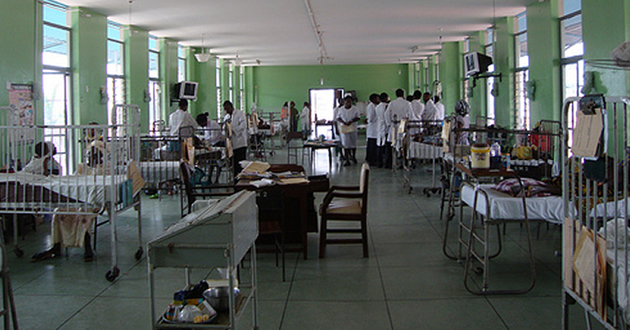Mrs Yewande Oluwatosin was seven months pregnant when she registered for the Lagos State Health Scheme (LSHS). She works in the informal sector as a hotel manager, but working for a private organisation, she said, did not preclude her from accessing the service.
Mrs Oluwatosin got wind of the scheme through a friend, who explained to her the importance of health insurance services.
“I was 7-months pregnant at the time and she advised that the scheme would enable me to have access to free healthcare service. So, I registered at the Lagos State General hospital, Ifako-Ijaiye. I subscribed to a family package which covers me, my husband and children if we have any.
“I gave birth through CS (Cesarean Section) and the scheme covered it. It was extremely good. Even after I gave birth I was rushed back to the hospital because I had cardiac arrest. I was treated and it was just a small amount of money that I paid, because the scheme already covered the fee, including tests,” said Mrs Oluwatosin.
It’s a similar experience for Lateef Adebayo in Osogbo, Osun State where he enrolled for the state health insurance scheme. As a civil servant in the state Ministry of Human Resources and Capacity Building, Adebayo was compulsorily enlisted into the Osun Health Insurance Scheme (O’HIS); a programme that was flagged off in 2018.
But because the scheme involves a monthly deduction from the basic salary of civil servants in the state for premium, Adebayo saw it as a ploy by the government to extort the workforce. However, in early 2019, Adebayo fell ill. Reluctantly, he picked up his O’HIS card and visited one of the accredited hospitals for the scheme in Osogbo, the state capital where he lives.
He tested positive for malaria and typhoid and the doctor on duty wasted no time; he was given what he described as “adequate treatment” in the form of drugs. He only paid just 10 per cent of the total bill when he tendered the card as proof that he had O’HIS coverage.
The situation is not different in Edo where subscribers to the Edo State Health Insurance Scheme access healthcare services devoid of out-of-pocket payment. Mr. Lamidi Ibrahim is a civil servant in the state, who had on several occasions received medical attention at the Primary Health Centre (PHC) in Ekehuan, courtesy of the state health insurance programme.
Ibrahim, a father of four said he began to enjoy health insurance when in 2019, the state Government set up the Edo State Health Insurance Commission. The commission, he said, earnestly commenced a mandatory monthly deduction of 1.75 per cent from the basic salary of all categories of civil servants in the state as premium for the scheme. Mrs Yewande Oluwatosin, subscriber LSHS
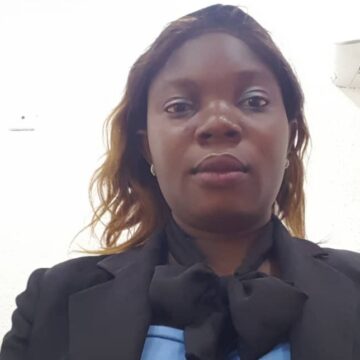
“There was a particular time I was sick and because I was enrolled at a health facility close to my residence, I gave it a thought that I should access the health insurance service. There at the centre, I was diagnosed with malaria and treated. It cost me only 10 per cent of the medical bill. That began my usage of the scheme,” said Ibrahim.
Generally, access to healthcare services in Nigeria was poor, especially in the rural and hard-to-reach areas. The most common barrier to these services was the cost. Healthcare access is the ability to obtain healthcare services such as prevention, diagnosis, treatment, and management of diseases, illness, disorders, and other health-impacting conditions.
Experts believe, however, that for healthcare services to be accessible, it must be affordable and convenient. Regrettably, many people do not have access to adequate healthcare in Nigeria.
The National Primary Healthcare Development Agency (NPHCDA) reported in 2022 that about six out of ten Nigerians lack access to quality primary healthcare services, a situation that is worsening disease outbreaks and out-of-pocket expenditure.
To complement sources of financing the health sector and to improve access to healthcare for the majority of Nigerians, the Federal Government in 2004 established the national health insurance scheme. The scheme is meant to provide easy access to healthcare for all at an affordable cost through various prepayment mechanisms.
The system ensures that there is equitable access to quality healthcare services for all, irrespective of their financial status. It also ensures availability of drugs, access to certified medical professionals and quality maternal and child care.
Nevertheless, over 90 per cent of Nigerians do not have health insurance despite the existence of the National Health Insurance Scheme (NHIS), meaning they pay out-of-pocket to access healthcare services
As part of strategies for attaining Universal Health Coverage, 19 states in Nigeria are at the various stages of replicating the Federal Government’s idea of health insurance, which aims to to reduce out-of-pocket payment as well as improving access to quality healthcare services.
Assessments of the schemes in Cross River, Edo, Lagos and Osun states indicate that the mission remained the same, the gains and performance of each state in the administration and management of the scheme are, nonetheless, different.
For instance, Lagos State Health Insurance Scheme, established in 2015 and the oldest amongst the four states, has 2.5 million subscribers out of the 26 million estimated population. This figure only represents 9.6 per cent of the population. Osun HIS, founded in 2018, has 260,000 subscribers, which is a little above six per cent of the 4.4 million estimated population.
In Edo, the state Health Insurance Commission established in 2019, so far enlisted 146,000 for the scheme. This number represents only 3.2 per cent of its 4.5 million population, even though the commission said the scheme had increased hospital attendance and utilisation from 0.3 to 17.9 since its inception. Cross-River Health Insurance Scheme, established in 2021 has over 40,000 enrollees from its 3.7 million estimated population. It covers just one per cent of the entire population.
These levels of coverage suggest that the management of the scheme in these states still has a long way to go towards achieving universal health coverage as none of the states has covered up to 10 per cent of the population. These figures, obviously, are abysmally low, though Lagos is better off other states. Similarly, it is only in Lagos State that the informal sector, which constitute 90 per cent of the workforce make up to 50 per cent of the total enrollees, other states have less than five per cent enrollment from the private sector.
Meanwhile the underlying reason for the poor enrollment rate seems to be universal across the states. The General Manager of the Lagos State Health Scheme (LSHC), Dr. Emmanuella Zamba said it was difficult to get the buy-in of people into the health scheme generally because of the poor attitude of people to insurance.
She described the health scheme as a work in progress, which could have some shortfalls due to low feedback from beneficiaries.
Similarly, the Director-General of the Edo Health Insurance Commission, Dr. Rock Amegor blamed cultural and traditional background of typical African settings for the low turn-in. According to him, it has been a little bit difficult to drive subscribers into the scheme from the informal sector.
“The turn-in from the formal sector has been more encouraging and the reason is not far-fetched; they are within our ecosystem. Reaching out to them is quite easy because of our electronic medical records and all that. They have visibility.
“If I needed to talk to someone in the Ministry of Transport, or Commerce, it would be a click away from our office. So those are the low hanging fruits that we have been able to get 95 per cent from that sector.
“From the informal sector, it’s been a little bit tough and one of the reasons is our cultural background and our traditional background. It is like telling our people that a 60 year-old man should go and write his will, he is going to tell you so you are planning for me to die.
“We get this kind of message as well when we tell people to come and get health insurance, they will tell you I will not be sick; I rebuke it in Jesus name. But it is nothing deterred, it is a continuous process,” said Amegor.
Dr. Niyi Oginni, the Executive Secretary of the Osun Health Insurance Agency, insinuated that residents’ reluctance to enrol might be based on personal choice and not because his agency had not created enough awareness.
According to him, the agency uses Facebook, Twitter and sponsored radio programmes on local radio and television stations to create awareness across the state.
Notwithstanding the claim by Oginni, Mrs Oluwatosin, a Lagos State resident and an enrollee of the health insurance scheme blamed poor awareness creation and lack of adequate publicity for the observable low coverage.
“My advice is if they can do more public awareness via TV, offices, radio, markets, social media etc. so others can be aware of this fantastic programme. Most people do not know about the scheme, even those that I told didn’t know about it,” she said.
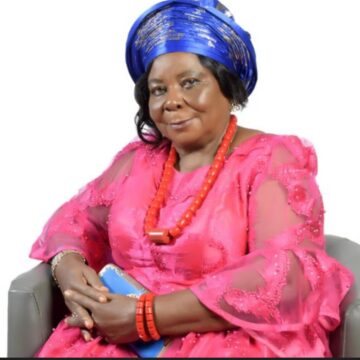
Core provisions
To provide affordable healthcare services to all residents, O’HIS has provisions for civil servants, organised private sector, traders, families, and tertiary institution students.
While civil servants and public are covered through the contribution of 1.5 per cent of their basic salary and 3 per cent contribution from the government, non-civil servants pay a premium of N12,066 or N57,600 yearly for individuals and families, respectively, to access the benefits.
An individual or family can register within minutes using an online application form. After enrollment, they are assigned to a Health Management Organisation (HMO) that helps attach them to an accredited facility closest to them. HMOs are groups that purchase the rights to register enrollees with social health insurance schemes.
About 442 public and private health facilities have been accredited under the scheme, spanning from less-equipped primary healthcare facilities to better-furnished secondary and tertiary hospitals. Where a patient’s need is beyond what the facility they are enrolled in can handle, their primary hospital refers them to a more equipped accredited facility.
Mr. Adesakin Olatunji, an O’HIS desk officer at the University of Osun Teaching Hospital, said the scheme divides enrollees into primary, secondary and tertiary categories.
“Any patient that visits an O’HIS accredited facility and is attended to by a general physician falls under the primary category. Such a patient is required to pay only 10 per cent of the bills as the balance is covered by capitation. Osun Health Insurance Agency pays accredited health facilities N570 capitation per enrollee monthly depending on the number of enrollees under such a facility,” Olatunji said.
“Patients with a reason to see a specialist [like an ophthalmologist or a surgeon] fall under the secondary category, while those whose diagnosis falls beyond the scope of their facility and have to be referred to a more capable health care facility fall under the tertiary category,” Olatunji explained.
Patients under the secondary and tertiary categories are catered for through a “fee for service” policy. The policy mandates well-equipped accredited facilities to accept referred patients, treat them, collect only 10 per cent of their bills, and later reclaim the remaining 90 per cent from the Osun State Health Insurance Agency through their HMO.
In May 2021, Mujidat Abiola, another civil servant living in Osogbo, was diagnosed with appendicitis. With severe pains ringing through her abdomen, her son rushed her to the former Ladoke Akintola University of Technology Teaching Hospital or LAUTECH (now University of Osun Teaching Hospital), an accredited facility, for surgery. After the surgery, “We paid just N34,000 instead of over N300,000…for the operation, drugs from the drug centre and tests at laboratories,” she explained.
In Edo state, the plans under the scheme are stratified into five. The plans according to the director-general of the health insurance commission are formal sector, informal sector, students/tertiary, private enhanced and equity plan. For the formal sector plan, which is specifically packaged for the civil and public servants in the state, 1.75 per cent of their basic salary is deducted monthly with the state government, which is their employer contributing another 1.75 per cent, to make the premium for the insurance 3.5 per cent of their salary.
Informal sector plan covers the artisans, traders and other business owners in the private sector as well as their employees. This plan is further divided into informal gold health plan, informal silver health plan and informal bronze health plan. The annual subscription fee for the gold plan is N68,000; silver, N35,000 while bronze plan goes for N18,000. The essence of the variations in the plan, the commission boss said, was to encourage access to healthcare services based on the financial capacity of the individuals.
“So if you are earning less than N50,000 per month, we advise you to go for the lowest payment in that plan which is N18,000. In doing so, you can pay N50 a day and at the end of the week, you will have paid N1500. If you calculate that for a year, you would have paid N18000. Don’t forget, this payment covers surgical care, eye care and specialist consultation, as well as some major surgeries except that there will be some kind of contributions either 70/30 or 50/50 as the case may be for surgeries.
“But if you earn between N50,000 and N150,000, we encourage you to get the silver plan, which is N35,000 a year and of course the gold plan for those who earn above N150,000. That plan is N68,000 yearly,” said the director-general.
Student health plan on the other hand is meant for students of tertiary institutions who are above 18 years of age and had lost eligibility for enlistment as dependent on the formal sector plan. The subscription premium for the plan is N18,000 and the subscribers are entitled to benefits similar to the informal bronze health plan.
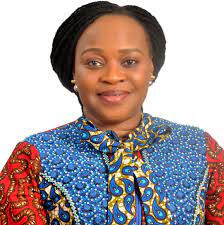
The private enhanced plan of the Edo HIS attracts N75,000 premium and accordingly encouraged for those with chronic diseases that may need more care and services.
In Lagos State, membership of the scheme is compulsory for all residents employed in the public and private sectors as well as the self-employed, those in the informal sector and the unemployed. All residents are to possess a health plan and they must provide evidence of being registered on the LSHS.
The Lagos State Health Management Agency (LASHMA) was also established by the (LSHS) Law to promote, regulate, supervise, monitor and ensure the effective administration of the Lagos State Health Scheme (LSHS).
There are 12 plans under the Lagos health insurance scheme christened as “Ilera Eko”. One of the plans is the Standard Plan for individuals and families. Individual plan attracts N8,500 annual premium and the scheme consists of basic primary and some secondary care for the formal and informal sector in the state, while standard plan for family costs N40,000 premium per annum and covers father, mother and maximum of four other dependents under the age of 23.
There are Standard Plus Plan for individuals and families and they attract N15,000 and N70,000 respectively. It is a higher and improved plan with more benefits and specifically designed for the middle class and above.
Also is Senior Plan, individual and Senior Couple Plan. They are customised social health insurance protection plans designed as bespoke for the elderly and 60 years plus. Sport Plan is meant for the residents in active sports and costs N60,000 annually. School plan with a yearly premium of N7,500 is also designed as health insurance for children in creche, nursery to secondary school and covers day and boarding schools during and out of session.
Tertiary institution plan is N5000 per annum and designed for full and part-time students of higher institution. EkoTelemed is a tele-consultation plan that attracts N3,000 per annum. It is designed for residents to have access to remote medical consultation from the convenience of their homes and offices.
LASHMA recently added the Diaspora Plan for individuals and families of six to the list of plans; these attract premiums of $55/£45 and $270/£220 respectively and provide opportunity to Nigerians living abroad, who are desirous of providing health insurance coverage for loved ones resident in Lagos State.
As of June 2023, 262 health facilities had registered for the scheme across the private and public health system.
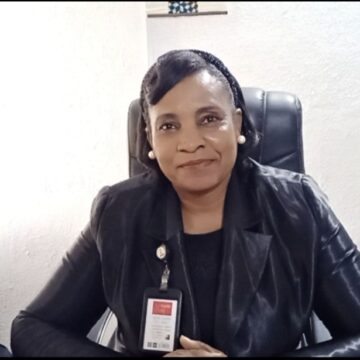
Cross River Health Insurance Scheme is in its embryo stage and for now, only open to public and civil servants in the state, who are mandatorily charged N1,000 flat rate from their salary.
Apparently, Lagos health insurance scheme is more robust and inclusive, meaning other states in the South or in Nigeria generally need a lot to learn from the health care management of the state, particularly Cross River which is just establishing its foot.
Inclusiveness
With the help of the equity funds by the Federal and state Governments, these schemes are able to cater for the weak and vulnerable members of the society at no cost to them.
For instance in Edo, more than 39000 vulnerable persons, who include the aged, children below 5, pregnant and Persons With Disabilities (PWD) have so far been captured under the scheme in 2023 alone. The target for the year, Dr. Amegor, the Edo HIC’s chief executive officer, said is 45,000.
“We also extended it to those vulnerable in the society where Federal and State governments are bringing funds together, and for this year, they are planning to cover about 45,000 people. Presently, we have covered 39,000 out of these 45000. You can see that very soon, we are going to cover that.
“Vulnerable persons include pregnant women, children under 5, elderly groups, which are people above 60 years, and those who are living with permanent and physical disabilities as well as sickle cell anaemia patients.
“The beauty about that package is that when you hit your target, the government is always encouraged to cover more. We are doing all we can to ensure the vulnerable are also taken care of.
“It is only when you can do that in the society that you can get an equilibrium in such that not just the rich people can get access to healthcare services, but those who may not have financial income and those who have disabilities,” he said.
Speaking in the same vein, the executive secretary of the Osun HIS said of those 260,000 subscribers in the state, about 100,000 fall under “social register”, which comprises the most vulnerable that access the health insurance services free of charge due to the counterpart funded equity.
In Lagos state, there are a total of 180,000 vulnerable persons, who have been registered in the scheme and specifically 3,438 are PWDs. To achieve this, the government had in 2021 approved N750 million from the equity fund for the payment of health insurance premiums for 100,000 vulnerable and indigent residents of the state. This helped the indigent to enrol without making payments.
“2500 [free] slots were given to PWDs in the state, it was managed by the Lagos State Office for Disability Affairs (LASODA) and it was shared among all the disability clusters across the state,” said Barrister Bolarinwa Salami, Chairman of the Lagos State Chapter of the Nigeria Association of the Blind (NAB).
Accounts of the beneficiaries
Mrs Oluwatosin said she had been enjoying the services since she enrolled in March 2022 and noted that the benefits of the scheme outweigh the monthly or yearly subscription premium.
“The benefits are numerous and that’s the reason I told people about it. If not for the scheme, maybe I would have paid up to 150,000 for CS I underwent. However, the treatment was covered; as for me, I enjoyed the scheme,” she said.
She rated the performance of the Lagos scheme excellent judging from her experience at the General Hospital, Ifako Ijaiye.
“I just selected a facility that is close to me after my friend advised me to register. My husband and I went to the hospital to make inquiries and we registered there.
“Most women that were in the hospital when I gave birth and didn’t register for the scheme regretted it. Most of them subscribed to the scheme almost immediately after they saw the difference in the bill we paid. I’m glad I heeded the advice.
“It might be different elsewhere but I enjoyed their services,” she said, noting that the quality of drugs too was okay.
Similarly, Pius Enefiok Nyong is blind and a leg amputee, who is also struggling with a kidney problem and high blood pressure before the LSHS came to the rescue as the scheme is now helping Nyong manage his health conditions, almost for free.
Nyong, a young man who had complications from Mellitus diabetes type II, which led to a total blindness, amputation of his right leg above the knee, kidney challenge, and high blood pressure. But he was enrolled in the scheme (for free) in September 2019, when officials of LASHMA conducted house-to-house enrolment of Lagos residents. He activated the service in 2020 at the Dailyzer Medical Centre, Mafoluku-Oshodi, the opportunity he described as timely and smooth.
“Imagine having to deal with 4 critical health issues, the cost, and expenses coupled with the fact that I do not have any substantial source of income anymore, but the timely intervention of this health scheme has really subsidised my treatment in a very big way.
“I was admitted for serious complications three weeks ago, I was [treated] and discharged without paying a dime,” he said.
Also in Osun State, besides Adebayo and Abiola’s testimonies, a 35-year-old widow, Olasunbo Adejare, described the insurance scheme as a paradigm shift in the healthcare provision and access in the state.
“When I first learned about the scheme, I wasn’t enthusiastic about coming forward to enrol because I didn’t believe it was going to be real. But since I began to enjoy the services, I’m convinced and feel happy to be taking part of the scheme,’’ Olasunbo enthused, waving her O’HIS membership card.
Corroborating the stance of other beneficiaries, Mrs. Evelyn Henry, a civil servant in Edo state shared her testimony. Just like Hamid Ibrahim, she’s wowed by the way the health insurance had reduced her out-of-pocket payment for healthcare services.
“It is actually a good innovation by the state government. I think the first time I accessed it was when I had malaria and I was taking drugs at home. But my neighbour came to tell me that since I had health insurance, why couldn’t I try and access it. That was the first time I did and ever since I have been enjoying it.
“There was a time two years ago when I was admitted and I was treated well. I also had cause to use it to see my ophthalmologist concerning my eyes. My children, my husband and everybody are benefiting from it,” she said.
Comparative limitations
As robust as the Lagos health insurance scheme’s awareness creation, residents said it was not intensive enough to encourage mass registration.
In Edo, subscribers identified the exclusion of some diseases on the list of treatments for the health insurance coverage in the state as a serious limitation.
Mrs Evelyn Henry noted “the challenges we are having with them is that the core drugs or the right drug that you need for your ailment or ill-health, they do not always seem to give you that.
“They give you the cheaper one and those ones that are not effective enough. At the end of the day, you may still have to come back or get more drugs outside. They will tell you these drugs are not provided for in the scheme. They can write it for you to get outside.
“Also some facilities where the civil servants are accessing or using are not good at all. Some do not have good doctors; they don’t have the right facilities to treat you.
“Though they do referrals to where you can be well treated. It is our hope that all manner of sickness and ailments should be provided for in the scheme. I know in the national HIS, diabetes and hypertension are not taken care of, I think it is the same with the Edo scheme.
“Also you don’t have access to consultants when a case is serious. I was having an issue sometime, a gynaecological issue and the doctor asked me to do a scan. But after the whole thing, he was still not satisfied and he asked me to see a gynaecologist. I have to make enquiries from the Edo HIS if it was provided for. At the end of the day, it was not provided for. That means I would have to pay to see a consultant.
“Most cases, these facilities are not okay. There was a time I was admitted for typhoid and malaria, but I came back home still treating typhoid and malaria because of mosquito bites. The mosquitoes that bite me in that hospital is something I cannot really explain.
“It is a nice one, but we hope they will improve their services and try to pick good facilities for us, not just a hospital you see,” she said.
Mrs. Henry also faulted the way subscribers were not allowed to make choice of the service providers. This is against the situation in Osun and Lagos where subscribers choose their preferred service providers among the list of accredited hospitals in the state.
“You can’t make a choice of the facility you want except the one that is allocated to you,” she lamented.
Meanwhile, one of the discouraging factors in Osun is the lengthy bureaucratic process it takes for some accredited facilities to reclaim costs incurred under the fee-for-service policy after treating referred patients.
“The claim must be vetted by an HMO who investigates for any unwarranted charges. The hospitals must present receipts, test results, and the financial sheets they issued to patients. Some accredited private and public health centre desk officers said the investigation process could last for as long as three months.
“This challenge sometimes affects the attitude of hospitals towards referred patients, especially in large public hospitals with high enrollees.
“But as part of efforts to encourage enrolments, the Osun Health Insurance Agency sometimes delists accredited centres found to be treating patients poorly,” said the executive secretary of the O’HIS.
For Cross River HIS, it is still in the formation stage with 40,000 subscribers only. As a result of this, only people in the public sector are enjoying the scheme. Similarly, awareness of the scheme is poor among the residents of the state, making the Cross River scheme the least performing health insurance amongst the four states.
This story has been made possible by Nigeria Health Watch with support from the Solutions Journalism Network, a nonprofit organisation dedicated to rigorous and compelling reporting about responses to social problems.

